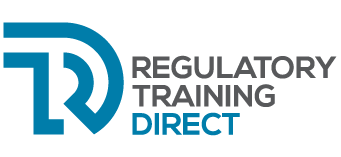current affairs
Issue 256, 1st – 31st March 2025
Training news
Three new courses on Australian Medical Device regulations! Medical devices are not just high-tech surgical implants or instruments; many devices are commonly found in households, such as bandages, LED face masks, dermal rollers, heat patches, condoms, some disinfectants, blood glucose and blood pressure monitors, syringes, gel wound dressings, eye drops for dry eyes, and medicine inhalers. There has been regulatory reform with devices in recent years and the courses are perfect for professionals wanting to upskill on the current regulations, and suppliers wanting to introduce products. These courses are available as either pre-recorded eLearning, or can be arranged as face-to-face Zoom meetings by appointment. Read more and book here:
Medical Device Regulation Fundamentals (1.5 hour)
Medical Device Classification (one hour)
Interacting with the TGA for Medical Devices (40 minutes)
These courses are delivered by Gary Burgess, who previously worked at the TGA leading teams conducting pre-market assessment of medical devices.
We have a faculty of 15 very experienced trainers – see them all here.
We now have 40 regulatory affairs courses, covering regulations in Australia, New Zealand and the USA. You can view them here and book online here
Regulatory affairs news
Complementary Medicines and Medical Devices
Updated list of ingredients permitted in listed complementary medicines. This list commenced on 1st March. To view the list of changes, go here. To see the most recent list of permitted ingredients, go here.
Strategic plan for the ACCESS Consortium. The Access Consortium consists of the national regulatory authorities of Australia, Canada, Singapore, Switzerland and the United Kingdom. You can view the strategic plan for 2025 – 2028 here.
Database of recalls, product alerts and product corrections. General information can be found here and here, and you can search the database here.
Importing unapproved medical devices. Relevant to unapproved vaping devices. The slides from a recent TGA presentation are available here.
Recalls – now called “Market actions”: Reynard Health 0.5% Chlorhexidine swab sticks foam, large foam swab sticks and prep pads 6cm x 6cm – a potential for Achromobacter contamination. Source: TGA
IVD medical device classifications and definitions: TGA has commenced a public consultation on proposed changes to the Australian IVD medical device classifications and definitions with a view on aligning classification rules, principles, and definitions with the EU IVDR, where appropriate. Consultation submissions close 8 May 2025. The consultation paper can be found on the TGA Consultation Hub
Medical devices containing medicinal, microbial, recombinant or animal origin substances – new guidelines published 6th March detail changes to classifications, labelling requirements, and how these changes apply to device applications lodged before and after 1st July 2024. Source: TGA
New guidance ‘Demonstrating the quality of listed probiotic medicines’ – TGA is conducting a Q&A session on Wednesday 30th April. For more details, and to book, go here.
Recalls procedure – don’t forget!: reforms to recall procedure have commenced 5th March 2025. The new procedure is known as the Procedure for Recalls, Product Alerts and Product Corrections (PRAC). TGA explains that “… new terminology replaces the confusing categories of ‘recall actions’ and ‘non-recall actions’ with one overarching category called ‘market actions’. “The TGA has published guidelines “What you need to know” based on a recent webinar.
Poisons schedules
Comments are invited on interim decisions on the following substances:
* Astodrimer sodium
* Atropa belladonna
* Ethylene oxide, propylene oxide and epichlorohydrin
* Symphytum officinalis (comfrey)
View the interim decision here, and submit feedback here.
Azelaic acid: The addition to Schedule 5 as well as Appendix E and Appendix F clarifies non-therapeutic use (cosmetics) and introduces labelling requirements
Compliance action
TGA has seized more than 5,000 vapes and 7,000 nicotine pouches in locations in Penrith (outer western Sydney suburb). Source: TGA
Safety alerts
* Based on studies in Europe, the TGA is warning that there may be an increased risk of neurodevelopmental disorders in children born to men who had been taking sodium valproate in the 3 months before conception. Source: TGA
* Broad-spectrum antibiotics: more prominent warning are being added, including tremors, restlessness, light-headedness, and very rarely hallucinations or seizures – tendonitis (inflamed tendons) and tendon ruptures – psychiatric reactions, e.g. confusion, anxiety and depression. Read it about on TGA website.
Botanical Adulterants Prevention Programme (BAPP) and other adulteration stories.
* Assessing authenticity of ginseng products through the use of a novel combination of multiplex PCR and DNA barcoding. Ginseng can include Panax ginseng, Panax quinquefolius, or Panax notoginseng. Unfortunately products containing ginseng can be adulterated. This comprehensive article was published in February by ScienceDirect in Food Control.
* Pharmaceutical quality of herbal medicinal products and dietary supplements – a case study with oral solid formulations containing Lavandula species. Interesting study that found 30% of the products failed the pharmaceutical quality testing, and 63% contained less or none of the main marker compounds for Lavandula. Published in ScienceDirect.
News from USA:
From Michael D Levin Founder, Health Business Strategies LLC
FDA’s new Chemical Transparency Tool is a welcomed resource. It is a searchable database to quickly find chemical limits and the US regulatory citations governing them in various foodstuffs. https://www.fda.gov/food/chemical-contaminants-pesticides
From Neil O’Flaherty at at Amin Wasserman Gurnani
US medical devices: As U.S. FDA and laboratories with laboratory developed tests (LDTs) gear up for the first round of medical device controls to be applied to LDTs in early May 2025, FDA has issued an updated FAQ document on LDT regulation. Read more on FDA website.
Foods
New – PDF document containing all of the Food Standards Code. This is very useful as it is searchable and contains all the standards and schedules. Access it here.
FSANZ Board met from 11-12 March 2025 to discuss and decide on standards matters, as well as governance, organisational, performance and strategic matters. The meeting communique is now available here.
Call for comment on egg food safety review. to provide new and/or amended food safety and primary production requirements for eggs and egg products. Read more and submit your comments here and here
New applications and proposals
* A1328- Approval of a new aminopeptidase enzyme from a genetically modified strain of Trichoderma reesei – Details here
* A1302 – Food derived from insect-protected corn line MZIR260 more here
* A1326 – Addition of phytosterols, phytostanols or their esters as a novel food to bread and bread products .. read more here
* A1325- Extension of use of steviol glycosides in hotplate flour products. Detals here.
Caffeine in sports supplements.
FSANZ is calling for comment on proposed changes to permissible levels of caffeine in foods, and in particular, Formulated Supplementary Sports Foods. The deadline for submissions is 11:59 pm 15 April (Canberra time). FSANZ states the proposal “considers whether additional measures are required in relation to the regulation of caffeine in the Australian and New Zealand food supply in order to protect public health and safety”. The draft variation to the Food Code would
• prohibit the retail sale of caffeine as a food unless expressly permitted by the Code
• prohibit a food for retail sale from containing caffeine as an ingredient or component unless expressly permitted by the Code
• in light of the above, remove the current Code prohibition on a food for retail sale containing caffeine in a concentration of: 5% or more of the food for sale if that food is a solid or semi-solid food; or 1% or more of the food for sale if that food is a liquid
• expressly permit FSSF to contain caffeine up to 200 mg in a one-day quantity (the amount of FSSF which is to be consumed in one day in accordance with directions specified on the label) and
• set new compositional, packaging and labelling requirements for FSSF, including a requirement that a FSSF must not contain caffeine at a concentration of 5% or more for a FSSF in a powdered form; or 1% or more for a FSSF in a liquid form.
Call for submissions
* A1315 – Chitosan and (1,3)-beta-glucans from white button mushrooms (Agaricus bisporus) as a food additive: this application seeks to permit the use of chitosan and beta-1,3-glucans from white button mushrooms (Agaricus bisporus) as a food additive in food and beverage products. Read more here.
* A1314 – Permitting small dogs and cats in aircraft cabins: this application seeks to amend the Code to permit companion animals (small dogs and cats) to accompany their owners aboard airline cabins under controlled conditions. Details here.
* A1323 – Food derived from insect-protected soybean line COR23134: to seek approval for the sale and use of food derived from soybean line COR23134, genetically modified for protection from lepidopteran insect pests. Read more here.
* P1056 – Caffeine Review: will review the permissions for caffeine in sports foods and general foods and consider the risk it poses to sensitive sub-populations. Refer to our story on caffeine above.
Recall statistics. In Food Standards March newsletter there is a discussion on the causes of recalls and a summary of recalls over the last 10 years, updated April 2024.
Recalls
* Coles Supermarkets – various mixed leaf products including: Spinach, Family Mix Stir Fry, Spinach and Kale, Spinach and Rocket, Beetslaw, 4 Leaf Blend, 4 Leaf Mix, Kitchen Pesto Risoni, Kitchen Egg and Spinach, Baby Leaf & Beet Blend, Baby Leaf Blend,
Mixed Leaf Garden Salad, Mediterranean Style Bowl, Beetslaw Bowl, Sweet Potato Superfood Bowl , Roasted Pumpkin, Feta and Walnut Salad, Kitchen Green Goddess Salad.– due to potential microbial (STEC) contamination – source: NSW Food Authority
* Woolworths – Fresh Cut Salad and Cook Stir Fry products including: Mixed Leaf, Cook Stir Fry with Teriyaki Sauce, Cook Stir Fry Mix Rainbow Vegetables, Kale & Spinach, Spinach & Rocket, Spinach, Honey Mustard Salad Kit, Mixed Leaf with Beetroot & Carrot, Honey Mustard Salad Kit, Asian Greens Stir Fry Vegetables, Cook Super Green – due to potential microbiological (E. coli – STEC) contamination. Source: NSW Food Authority
* Metcash (independent retailers including IGA and Drakes) – mixed leaf products including: Community Co Aussie Salad Mix, Community Co Fine Cut Stir Fry, Community Co Baby Leaf Salad Mix, Community Co Leaf Mix, Community Co Baby Spinach, Community Co Baby Spinach and Rocket, Community Co Garden Bowl – due to potential microbiological (E. coli -STEC) contamination Source: NSW Food Authority
* ALDI – Fresh Salad Co Baby Spinach, Fresh & Fast Stir Fry, Baby Spinach & Rocket and Salad Leaf Mix, Baby Leaf Salad Blend – due to the presence of Shiga toxigenic Escherichia coli (STEC) Source: NSW Food Authority
* Emmaline’s Choc Apricot Biscuits – some products – due to the presence of an undeclared allergen (cashew). Source: NSW Food Authority
* Patties Food Group – On the Menu Roast Chicken Roll – due to the presence of undeclared allergens (peanut and crustacean). Source: NSW Food Authority
* Superpop – Movietime Popcorn + Fizz Pop Sours – due to presence of undeclared allergen – gluten. Source: FSANZ
* Woolworths – Grinny Pea Puffs Chicken Flavour – due to presence of foreign matter (glass) Source: FSANZ
Additional food news contributed by Gary Kennedy from Correct Food Systems:
* UK Health officials are investigating a listeria outbreak that has killed three people due to Listeria monocytogenes in frozen mousse. Read more in Food Safety News.
* US based SQF Code, which is mainly food, but affects other manufacturing industries including packaging and pet food, is releasing V10 later this year.
Here’s some information sent out to Food Auditors:
While Edition 10 includes many new features, here are some highlights shaping the new Code.
• Strengthening Food Safety Culture:
We’re introducing a comprehensive Food Safety Culture Plan that sets clear objectives and performance measures. This plan is designed to instill a shared commitment to food safety—from leadership to frontline workers.
• Enhancing Change Management:
Edition 10 now includes a dedicated Change Management clause. Organisations must document procedures for managing changes in equipment, processes, or personnel, effectively mitigating associated risks.
• Streamlining Records and Documentation:
Recognising the challenges of scattered record-keeping, we’ve consolidated documentation requirements into one clear section. This reorganisation simplifies compliance and provides auditors with a more straightforward review process.
• Emphasising Critical Training and Assessments:
The updated code mandates rigorous assessments of critical training programs, ensuring that all personnel remain competent and fully capable of upholding the highest standards of food safety.
New Zealand Food safety insights, emerging risks, and current issues bulletins:
18th March bulleting includes information on food preparation and acrylamide, pollen food allergy, allergic reaction to snacks with mistranslated labels, Salmonella in ground melon seeds from Ghana, Microbiological hazards associated with raw cow’s milk cheese from France, canning materials faults, and Recalls in Belgium due to incorrect or no date marking. Read it here on NZ MPI website.
New Zealand Food 2025 food recalls :
* Century brand Tuna Hot and Spicy
* Supremely Gourmet brand Mint Dark Chocolate, Orange Dark Chocolate, and Premium * Dark Chocolate
* Make it Raw brand Spiced Apple and Buckwheat Grawnola
* Pams brand Tempura Coated Chicken Nuggets
* Heritage Breads brand Ready to Bake Mighty Garlic Ciabatta
* Cape Herb & Spice brand Himalayan Pink Salt, Seasoned Salt, Salt & Pepper, and Sweet & Smoky BBQ
* LollyShop brand Frosted Caramels
* Mexicano brand Corn Chips Cheese
* Oxford Pies brand Steak Pie
* Sanitarium Health Food Company brand Up & Go Protein Energize Vanilla
Source: NZ MPI food recalls
In the press
* Health effects of drinking 100% juice: an umbrella review of systematic reviews with meta-analyses. Interesting research challenged the oft-repeated opinion that pure fruit juices are unhealthy due to sugar levels. Posted on LinkedIn by Tim Cassettari here and published by Oxford Academic here.
* PFAS chemicals have been in drinking water in the Blue Mountains west of Sydney for years but until recently the water has not been tested. A class action against Sydney Water and the NSW government is imminent. One of many recent press articles is on ABC.net.au.
Cosmetics and TGA listed sunscreens
Sunscreens
ISO Sunscreen SPF Standards Options – Current Status Update. An update to international testing options, includes 3 methods to choose from for qualification of the SPF number claim on sunscreen products…
ISO 24444 : 2019 [1]- the so called “Gold Standard” in wide international use for over 40 years.
ISO 23675 : 2024 – [2] an in vitro method involving no humans but instead, application by robotics of samples to plastic plates with surface roughness approximating a human skin model.
ISO 23698 : 2024 – [3] a “hybrid” method wherein human volunteers are still utilised but with a very low dose of UV light challenge to patches of skin in a non-invasive and rapid methodology. Determination of the SPF is then based on instrumental measurement, rather than by human observation.
This article discusses requirements in EU, Australia, NZ, USA, Japan, ASEAQN, MERCOSUR (South America Common Market), UK and Canada. Read more here
AICIS is inviting comments on a proposal to directly link about 700 chemical records on the Inventory to their associated NICNAS assessment reports. The links would allow users to open the NICNAS assessment report directly from the Inventory chemical record, without needing to do a separate search. For more details, and to submit feedback, go here.
Outcome of public consultation on changes to the AICIS Industrial Chemicals Categorisation Guidelines is available here.
AICIS is seeking feedback on the clarity of the information requirements for an assessment certificate for a ‘designated fluorinated chemical’ – more info, and to have your say, go here.
Voluntary Industry Code of Practice to Support the Australian Ban on Testing Cosmetics on Animals – published by peak industry association for cosmetics ACCORD – read about it on their website here.
Hyaluronic acid has been in the news! As published on the ABC: “Kmart withdraws hyaluronic acid skincare product after teen suffers eye injury”. A teenager took a cleansing balm containing hyaluronic acid and ended up being hospitalised after suffering painful eye damage. A previous article on the ABC site doubts the claims that hyaluronic acid can hold 1,000 time its weight in water. A related article “Things to consider before your tween or teen buys ‘cheap’ skincare products” was published on 13th March.
Chemicals added to the Inventory 5 years after issue of assessment certificate (obligations to provide information apply) – as at 21st March: 5 chemicals listed here.
Additional cosmetics news contributed by Rita Sellars of pH Factor:
*Regulatory Update: Schedule 7 Listing of Surfactant Impurities
A recent regulatory proposal aims to amend the Poisons Standard concerning ethylene oxide, propylene oxide, and epichlorohydrin—trace impurities commonly found in widely used surfactants in Personal Care, such as Sodium Laureth Sulfate (SLES), Polysorbate 60, and PEG-100 Stearate. These substances are currently listed in Schedule 7, with no specified concentration cut-offs, despite their unavoidable presence in certain surfactants.
The proposal recommended introducing a 20 ppm exemption limit to better reflect industry practices and mitigate compliance challenges. While the Joint ACMS/ACCS committees supported a 10 ppm cut-off, the Delegate issued an interim decision to maintain the current Schedule 7 listings without exemptions.Public consultation on this interim decision is open until 4 April 2025. This presents the final opportunity to provide feedback before the decision is finalised. For detailed information, please refer to the Notice of Interim Decisions and the Public Consultation on Proposed Amendments to the Poisons Standard.
* Rita Sellars is conducting two workshops on formulating your own skin care range. Read more and book here.
From our colleagues at Cosmetic Consultants Europe:
Safety Assessment of Cosmetic Products online training:
• Module 1: ‘Regulatory Affairs – Approaching Cosmetic Products & their Safety’
• Begins: Tues., 27. May 2025 | 12EST 17GMT 18-19.30CET
Contact Steven L. Hanft, M.A., Business Communications, steven.hanft@cpsr-education.com
In the press:
Illegal tanning nasal sprays pushed by social media influencers. Experts are concerned that the dangerous ingestible tanning products are becoming increasingly popular. Source: CHOICE magazine.
ACCC and similar
ACCC
The final report for the ACCC’s supermarkets inquiry has made 20 recommendations after finding that ALDI, Coles and Woolworths are some of the most profitable supermarket businesses among global peers and their average product margins have increased over the past five financial years. Read more on ACCC website here.
Published by Regulatory Training Direct www.regulatorytrainingdirect.com
Providing regulatory training courses for complementary medicines, GMP, foods, cosmetics dietary supplements.
Contact us to become a sponsor of one of our newsletters.
This newsletter is sent at no charge. You are welcome to forward this to any colleagues who may find it useful. To receive this newsletter regularly click this link
Get in touch
info@regulatorytrainingdirect.com



